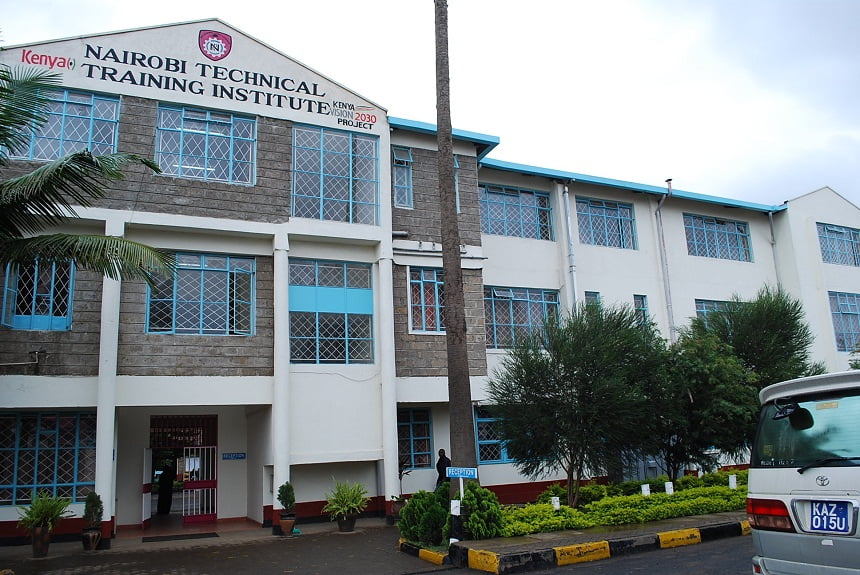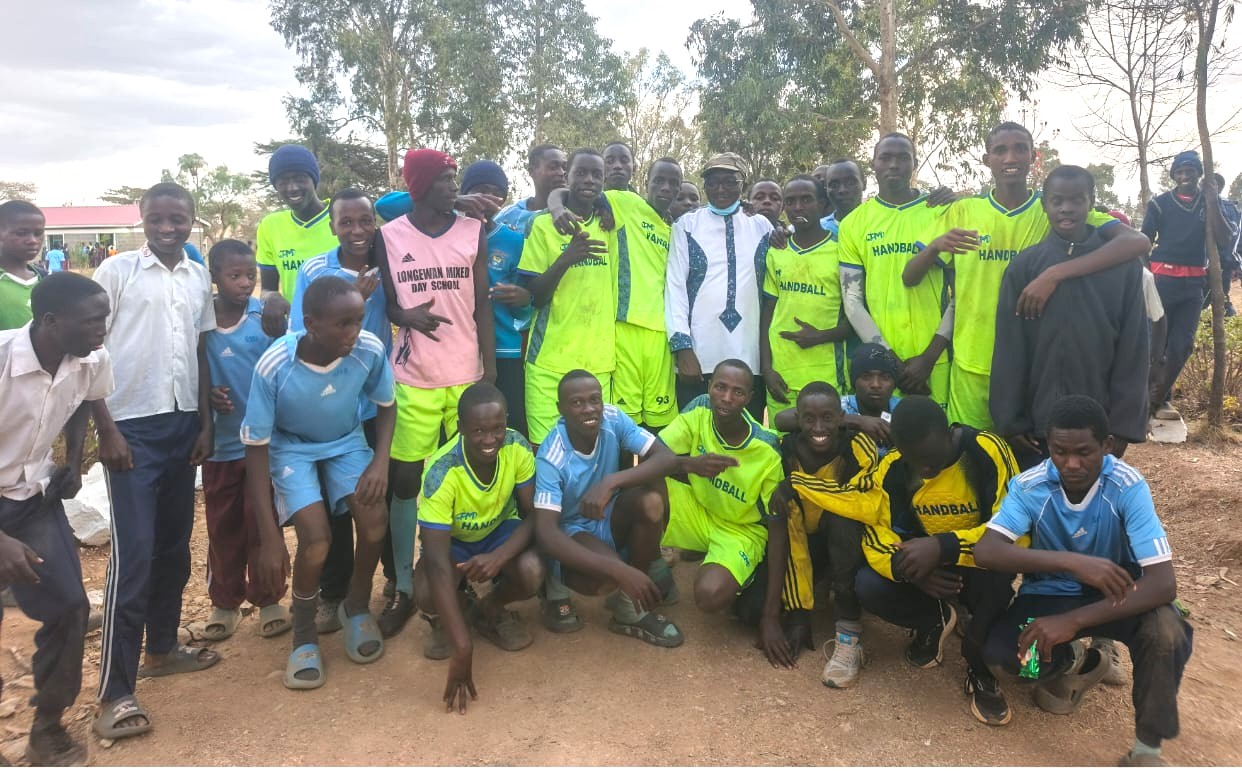The Nairobi Technical Training Institute has been elevated to a national polytechnic.
Speaking to Education News in her office a couple of days ago, the institution’s Chief Principal, Dr. Glory Mutungi, confirmed that the training facility was upgraded through a legal notice no.34 of 2025 on February 14, 2025, following a Cabinet approval in November last year.
Dr. Mutungi revealed that her administration has embarked on rebranding the institution to the expected standards of a National Polytechnic.
“We are also reviewing our policies to align them with the new mandate, besides retooling our staff to build capacity in areas like curriculum development and competency-based assessment,” explained the polytechnic head.
Dr. Mutungi said the institution is now working on the modularisation of the Competency-Based Education and Training (CBET) curriculum, which is scheduled to take effect in all Technical, Vocational Education and Training (TVET) institutions nationwide from May this year.
She disclosed that the institute, in collaboration with automobile companies in Kenya, has been implementing dual training in automotive mechatronics engineering since September 2020.
The Nairobi Polytechnic head said that the first cohort of 15 trainees under the programme successfully completed their studies and are all employed as service advisors and diagnostic technicians with different companies in Nairobi.
She further revealed that the training facility had extended its Dual Training program to cover additional courses, including Automotive Engineering, Culinary Arts, and Housekeeping & Accommodation, starting from September 2024.
’“Dual’ or “Cooperative Vocational Training’ allows for 50 per cent learning in the institution and 50 per cent practical training in the industry. This model of training allows trainees to alternate theory in the lecture rooms and practical training in the relevant industry, thus enabling them to get the much-needed hands-on experience, skills, and exposure to the work environment,” explained Dr. Mutungi.
She hailed the model as having bridged the existing gaps between the training offered in TVET institutions and the skills required in the industry, adding that plans were underway to extend the same to other departments like Mechanical and Chemical Engineering.
READ ALSO:
MoE launches Grade 9 pathway selection process ahead of 2026 transition
The Chief Principal pointed out that the ultimate goal of the institution is to spread dual training to cover all the other courses being offered.
Dr. Mutungi confirmed that the national polytechnic was currently partnering with Strathmore University and VETA of Tanzania on a Vocational programme on the Internet of Things.
“We’ve already developed an IOT curriculum in collaboration with VETA Tanzania, trainers have also been trained, and the first cohort of trainees under the partnership program are currently undergoing training at Nairobi National Polytechnic,” confirmed Dr.Mutungi.
She noted that with the new change in status, the polytechnic is set to undergo a major infrastructural facelift, which will involve the expansion of training facilities and the acquisition of new equipment to meet the rising demand due to high enrollment of trainees.
“We intend to open our School of Hospitality in May this year because our ultra-modern Food and Beverage Complex is now complete. It features a modern kitchen for production and a restaurant, complete with guest accommodation rooms and conference facilities, designed to prepare all-around hospitality graduates who will be well-equipped to fit into the industry. The complex will be open to members of the public as part of our production unit,” said the chief principal.
She further noted that the completion of the Automotive-Mechatronics workshops, currently funded by the GIZ through the KFW Development Bank of the German Federal Government, will greatly enhance the level of training and exposure for trainees at the institution.
“The workshops will house ultra-modern training machinery and equipment in the automobile industry. “We want to have a complete garage, which will be open to the public for the purpose of servicing vehicles as part of our production unit,” said the polytechnic head.
Dr. Mutungi revealed that the polytechnic had written to the government through the parent Ministry of Education, requesting the allocation of some affordable housing units to enable it to establish hostels for trainees. This will boost the polytechnics’ enrolment.
Staff and trainees at the institution have developed innovative solutions to address societal problems, including road safety, climate change, and waste management. These innovations have won accolades in regional and national competitions.
The institution was ranked third best worldwide by the World Federation of Colleges and Polytechnics (WFCP) in Montreal, Canada, in 2023.
Major awards
In the same year, the institution was also awarded by the Kenya Education Network (KENET) as the top tertiary institution in the country with an unlimited bandwidth consumption ratio, in a colourful ceremony held at the White Sands Hotel in Mombasa.
The polytechnic has an online library that offers access to relevant materials for staff and trainees, available both on and off campus.
Additionally, Dr. Mutungi received a Silver Award of Excellence in Leadership and Diversity at a WFCP event held in Jamaica in September 2024.
Nairobi National Polytechnic hosted its inaugural Innovation Fair and Exhibition in October 2022, drawing participants from various primary and secondary schools, as well as other stakeholders.
The event provided a perfect opportunity for the institution to market its courses and showcase innovations from all its departments.
The second Innovation Fair and Exhibition was held from October 4 to 5, 2024.
Nairobi National Polytechnic has ten academic departments offering various courses in engineering, science, business, hospitality management, ICT and entrepreneurship.
To promote diversity and inclusivity, the polytechnic has introduced short courses, including the International Certificate for Digital Literacy (ICDL), Solar PV, Motor Accelerated Mechatronics, Motor Vehicle Electrician, Fibre Optics, Networking, and Computer Python Configuration, among others.
The institution is a registered assessment centre for the Recognition of Prior Learning (RPL). RPL is a method used to assess an individual’s existing skills and knowledge against the requirements of a qualification or competency standard. It allows trainees to receive credit for what they already know, reducing the time and effort needed to achieve formal qualifications.
The institute is already training technicians from Auto Express Limited and has also introduced competency-based education and training (CBET) courses in all ten departments.
The polytechnic is currently offering a total of 142 CBET courses across ten academic departments. The CBET courses are being implemented through a blended mode of training (in the classroom and online Learning Management System—LMS).
Nairobi National Polytechnic has for a long time been recognised as a Centre of Excellence in Health and Applied Sciences (Pharmaceutical Technology and Medical Laboratory Technology).
Furthermore, the Ministry of Education, through the State Department for Technical and Vocational Education Training (TVET), identified the institution as one of the three Centres of Excellence for Automotive-Mechatronics Engineering.
Brief History of Nairobi National Polytechnic
Nairobi National Polytechnic derives its history from 1951, when it started as “Modern High School,” catering predominantly for the Asian community resident in the neighbourhood. Though a secondary school, the curriculum offered at the time had a bias towards the inculcation of vocational skills, which encompassed mechanical engineering and carpentry & joinery. In 1953, the school’s name was changed to Technical High School, and the Cambridge School Certificate Examination was first administered in 1954.
At independence and in the spirit of the Ominde Educational Commission of 1964, the school opened its doors to all races. The curriculum continued to emphasise technical education and was expanded to include skills in plant mechanics, woodwork, electrical work, and motor vehicle mechanics. Both ‘O’ and ‘A’ level classes were accommodated.
With the implementation of the Mackay report in 1984, all technical high schools in the country were converted to technical training institutes to admit and equip high school leavers with vocational skills. Nairobi TTI came into being and initially offered courses at the artisan level. These courses comprised general fitter, welding and fabrication, carpentry and joinery, electrical installation, motor vehicle mechanics, and business studies.
Following an appraisal of the institute, craft courses were introduced in 1988, encompassing mechanical engineering, electrical installation, motor vehicle mechanics, science laboratory technology, supply management, and KATC. Enrollment into Carpentry and Joinery continued to dwindle, and the course was eventually phased out and replaced with Garment Making in 1995.
Applied Biology was launched in 1995 as the first diploma-level program. This marked the beginning of the introduction of a wide array of programs in various fields at the diploma level, the latest being food and beverage, pharmacy, Social work and Community Development, Entrepreneurship Development, and information and communication technology.
By Tindi Kuchio
You can also follow our social media pages on Twitter: Education News KE and Facebook: Education News Newspaper for timely updates.
>>> Click here to stay up-to-date with trending regional stories
>>> Click here to read more informed opinions on the country’s education landscape






